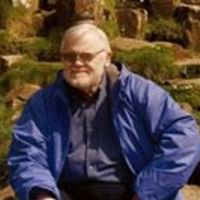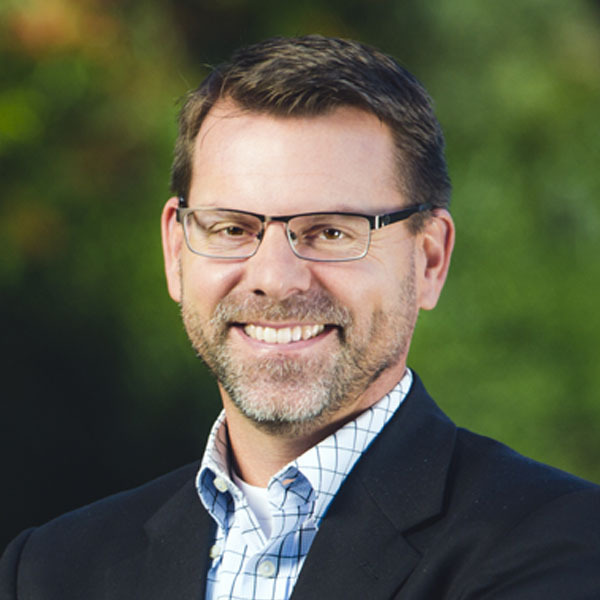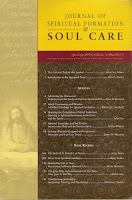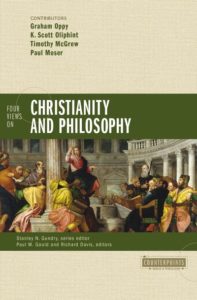WELCOME to a unique and ongoing project at the website of the Evangelical Philosophical Society, where we are featuring interactions with Paul Moser’s paper, “Christ-Shaped Philosophy: Wisdom and Spirit United.”
Abstract: Christian philosophy is a distinctive kind of philosophy owing to the special role it assigns to God in Christ. Much of philosophy focuses on concepts, possibilities, necessities, propositions, and arguments. This may be helpful as far as it goes, but it omits what is the distinctive focus of Christian philosophy: the redemptive power of God in Christ, available in human experience. Such power, of course, is not mere talk or theory. Even Christian philosophers tend to shy away from the role of divine power in their efforts toward Christian philosophy. The power in question goes beyond philosophical wisdom to the causally powerful Spirit of God, who intervenes with divine corrective reciprocity. It yields a distinctive religious epistemology and a special role for Christian spirituality in Christian philosophy. It acknowledges a goal of union with God in Christ that shapes how Christian philosophy is to be done, and the result should reorient such philosophy in various ways. No longer can Christian philosophers do philosophy without being, themselves, under corrective and redemptive inquiry by God in Christ. This paper takes its inspiration from Paul’s profound approach to philosophy in his letter to the Colossians. Oddly, this approach has been largely ignored even by Christian philosophers. We need to correct this neglect.
Read the full-text of Moser’s paper for FREE by accessing it here (readers might also be interested in the discussion on Moser’s “religious epistemology” in the Winter 2012 issue of Philosophia Christi).
PROJECT PURPOSE: For philosophers and theologians, we invite you to consider submitting a carefully-honed response to one aspect of Moser’s thesis and argument, whether by critiquing it, advancing it, applying and integrating it to various areas of philosophy, theology and spirituality, or even by articulating some practices conducive toward ‘doing’ Christ-shaped philosophy.
LENGTH: 1500-2000 total words. You are welcome to work with the Project Editor on length issues.
DEADLINE: TBD with editor/coordinator (see below).
Each month, we plan to feature at least one new contribution in this space
CONTRIBUTIONS
- Clifford Williams, “Emotions and Christ-Shaped Philosophy.”
- Graham Oppy, “Moser, Ambiguity, and Christ-Shaped Philosophy.”
- Paul K. Moser, “Reply to Oppy.”
- William Hasker, “Paul Moser’s Christian Philosophy.”
- Paul K. Moser, “Reply to Hasker.”
- Roberto Di Ceglie, “Paul Moser, Graham Oppy, and the Philosophical Dignity of Christian Faith.”
- Richard Davis, “Christian Philosophy: For Whose Sake?”
- William Hasker, “Two Wisdoms, Two “Philosophies”: A Rejoinder to Moser.”
- Michael W. Austin, “Analytic Moral Theology as Christ-Shaped Philosophy.”
- Roberto Di Ceglie, “I Cannot Convince Oppy: My Rejoinder to His Reply.”
- Michael T. McFall, “Christian Philosophy and the Confessional Classroom.”
- Paul K. Moser, “Doing and Teaching Christian Philosophy: Reply to McFall.”
- Dave Bukenhofer, “Christ-Shaped Philosophy and Content.”
- Tedla Woldeyohannes, “Moser’s Christ-Centered Metaphilosophy.”
- Tedla Woldeyohannes, “A Missed Opportunity: Reply to Moser.”
- Joseph N. Partain, “Christian Philosophy and Philosophy’s Perennial Problems.”
- Charles Taliaferro, “Is Paul Moser among the Swinburnian Philosophical Theologians?”
- Angus Menuge, “Ramified Personalized Natural Theology: A Third Way?”
- Paul K. Moser, “On Ramified Natural Theology: Reply to Menuge.”
- Natasha Duquette, “Spiritual Songs and Biblical Wisdom.”
- David K. Naugle, “Traits of Christian Philosophers.”
- Tedla Woldeyohannes, “Must Christian Philosophy Be Directly About Christ? Reply to Davis”
- Angus Menuge, “The Golden Cord and God’s Economy: Reply to Moser.”
- Aaron Preston, “Two Wisdoms? The Unity of Truth, the Spirit of the (Academic) Disciplines, and the Norms of Academic Philosophy.”
- William Hasker, “Two Wisdoms Once More: Reply to Aaron Preston.”
- Nathan Greeley, “Christ-Shaped Philosophy and Systematic Theology: Paul Moser’s Gift to Theologians.”
- Aaron Preston, “On the Purported Superiority of Gethsemane Epistemology.”
- R. Daniel Dake, “Paul Moser and the Antecedent Belief Criticism.”
- Tedla Woldeyohannes, “Given the Evidence, Natural Theology is Here to Stay!”
- Tedla Woldeyohannes, “Natural Theology in Context: Rejoinder to Moser.”
- Harry Bunting, “Christ-Shaped Moral Philosophy and the Triviality of 20th Century ‘Christian Ethics'”
- Philip Stewart, “Is Christ-Shaped Philosophy Really Philosophy?”
- James H. Collin, “Ramified Natural Theology, the Moser Way?”
- Mark Mcleod-Harrison and Stephen Kenyon, “Love, Wisdom and (Christian) Philosophy.”
- John Daniel McDonald, “Philosophical Questions and the Unity of the Trinity: Re-engaging Christ-shaped Philosophy.”
- John Daniel McDonald, “‘Be Quick to Hear and Slow to Speak’: Exploring the Act of Listening as a Christ-Shaped Philosophical Virtue.”
How Can You Contribute? 15 Suggestions
- Interact with the paper’s thesis on its own merit. Perhaps you might want to discuss an assumption, concept, claim, distinction, methodology, etc., in Paul’s paper.
- Do Christ-Shaped Philosophy. Instead of just talking about it, perhaps you would like to model how Christ-Shaped philosophy can be done regarding some carefully-honed topic, whether one that Paul has addressed or something else.
- Address how to do Christ-shaped philosophy, whether as a discussion focused on relevant prolegomena issues or concerning the practical processes or practices involved. Here, we welcome even just a proposal for the ‘how to.’
- Explain the theological assumptions of Christ-shaped philosophy and show how it contributes to this way of ‘doing’ philosophy.
- Contextualize Christ-shaped philosophy in view of other relevant works by Paul Moser. (Paul’s paper is a continuation of his work in earlier publications such as: his Faith and Philosophy paper, “On Jesus and Philosophy”; chapter 4, “Philosophy Revamped,” from his book The Elusive God; his “Introduction” to his edited book, Jesus and Philosophy. A goal here may include drawing an overall general picture of his conception of ‘Christian philosophy’ from his relevant works).
- Envision what it might mean to do Christ-shaped philosophy as and for the church. What are the ecclesial factors and significance for Christ-shaped philosophy? What might be the epistemic significance of theological tradition for informing Christ-shaped philosophy?
- Develop how Christ-shaped philosophy might affect philosophy practices (e.g., teaching, dialogue/discourse, and writing/publishing in philosophy). If it does (re)shape practices, explain how it does to distinctively?
- Compare the approach and benefits of Christ-shaped philosophy with Analytic Theology. Are they interrelated? Are they addressing similar topics yet asking different questions?
- Convey what are the implications of Christ-shaped philosophy for philosophy as a professionalized and specialized discipline in the academy, whether of an analytic or continental variety. Does Christ-shaped philosophy defy that categorization?
- If Christ-shaped philosophy is not ‘respected’ or ‘taken seriously’ in the academy, should it be attempted in that context?
- Envision the vocation, moral-spiritual character development training and skills of a philosopher if Christ-shaped philosophy is true. Consider this especially in the context of the contemporary practice of analytic philosophy in academic environments. How might graduate work look different if Christ-shaped philosophy is a goal? How might the socialization process and factors of becoming a ‘philosopher’ look any different?
- Consider the purpose and outcomes of Christ-shaped philosophy for ‘doing’ Christian apologetics and theology. How might apologetics and theology work differ in relationship to ‘Christian philosophy’ work if Christ-shaped philosophy is true and enacted?
- Develop the value and development of Christ-shaped philosophy in conversation with ‘contemporary’ and ‘historical’ voices. Which voices might help advance or help assess Christ-shaped philosophy, whether these are theology, philosophy, or spirituality voices.
- Consider whether Christ-shaped philosophy can be a ‘synthesis’ posture/framework for doing philosophy as a Christian, whether one is working from Reformed Epistemology, Evidentialism, Post-Foundationalism, Covenant Epistemology, etc.
- Envision how the basic contours of Christ-shaped philosophy might be viewed as a model for Christians ‘doing scholarship,’ regardless of their discipline or area of specialization. How might it be address so-called ‘worldview integration’ issues?
Project Coordinator & Editor
Tedla G. Woldeyohannes
Department of Philosophy
Saint Louis University
Saint Louis, MO 63108
Project Developer & Overseer
Joseph E. Gorra, Consulting Editor, Philosophia Christi
Copy Editor Assistant
Dave Strobolakos









